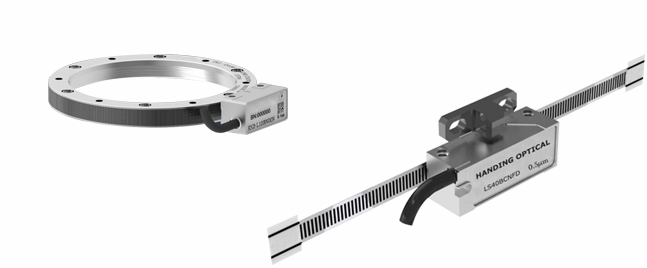Advantages of Linear Encoders:
Linear encoders offer several benefits over other position feedback methods, making them popular in various applications. Here are some key advantages:

—High Accuracy and Precision: Linear encoders provide extremely precise position information, often down to sub-micron levels. This makes them ideal for applications requiring tight tolerances and accurate motion control.
Absolute Position Measurement: Unlike incremental encoders that track relative position changes, many linear encoders offer absolute position measurement. This means they report the exact position upon startup without needing a homing sequence.
—Immunity to Electrical Noise: Linear encoders are generally less susceptible to electrical noise compared to other feedback methods, leading to more reliable and consistent performance, especially in electrically noisy environments.
—Wide Range of Travel Lengths: Linear encoders are available in various travel lengths, making them suitable for applications ranging from small, precise movements to long-distance positioning tasks.
—High-Speed Operation: Many linear encoder types can handle high-speed movements effectively, making them suitable for dynamic applications.
—Durability and Reliability: Linear encoders are often built to withstand harsh industrial environments and offer reliable performance over extended periods.
—Multiple Output Formats: Linear encoders can provide position data in various formats, such as analog, digital, or serial communication protocols, offering flexibility for integration with different control systems.
Additional Considerations:
While linear encoders offer numerous advantages, it’s essential to consider some potential drawbacks:
—Cost: Compared to some other feedback methods, linear encoders can be more expensive, especially for high-precision models or long travel lengths.
—Complexity: Integrating linear encoders into a system may require additional components and considerations compared to simpler feedback mechanisms.
—Physical Size: Depending on the type and travel length, linear encoders can require more physical space for installation compared to rotary encoders or other compact feedback devices.
Overall, linear encoders are a powerful tool for precise position feedback in various applications. Their accuracy, reliability, and versatility make them a preferred choice for demanding motion control tasks.
Post time: Apr-10-2024







